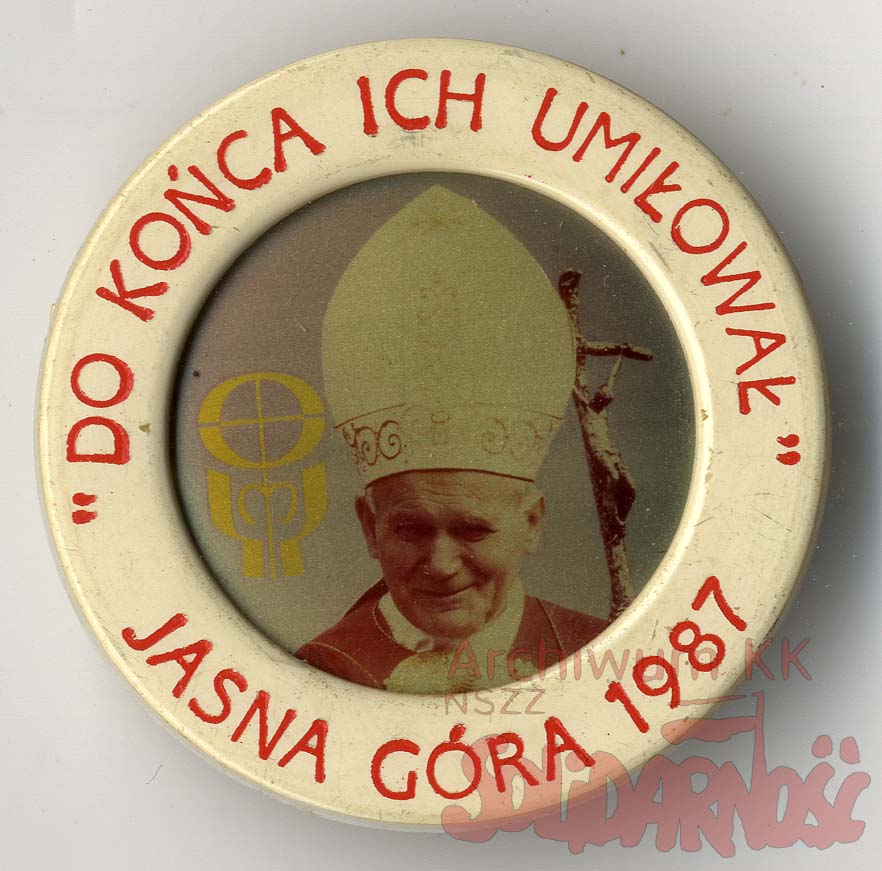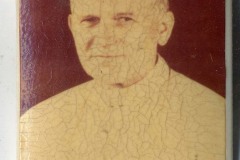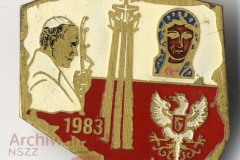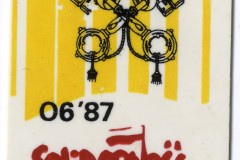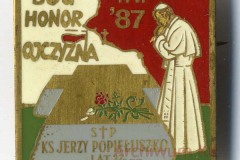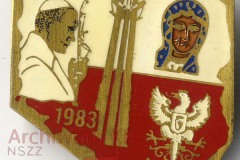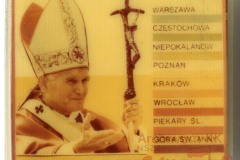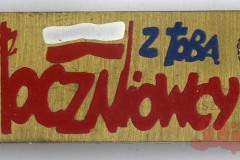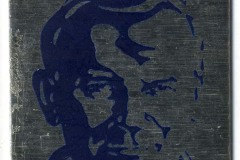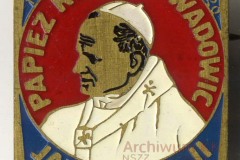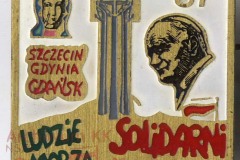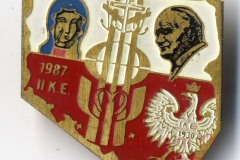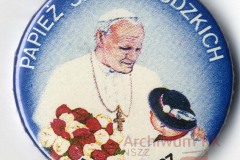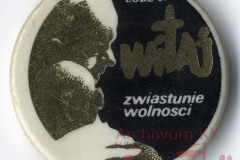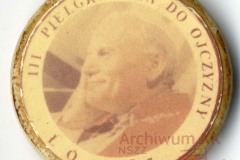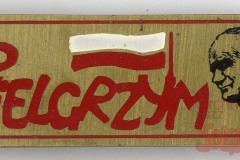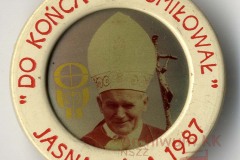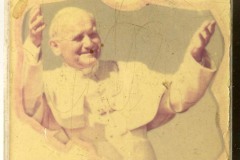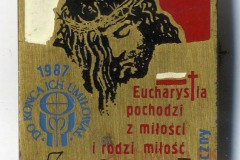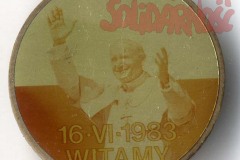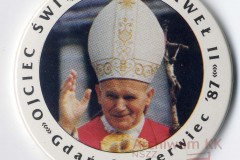Badge pins worn on clothing to commemorate Pope John Paul II’s pastoral visits to Poland
The badge pins collection in the Historical Archives of the National Commission of the Solidarity Trade Union contains memorabilia related to the first three pastoral visits of Pope John Paul II to Poland.
The first pastoral visit took place on 2-10 June 1979, before the Solidarity Trade Union was established. On this occasion the badge pin with the Pope’s image and phrase: John Paul II in Poland was issued. Another badge in the collection, related to the same pilgrimage, commemorates the 7th of June visit in Wadowice, the birth town of the Pope. It shows the Pope’s face and inscriptions: Pope from Wadowice, John Paul II, all Yours. It also contains four dates referring to events of Karol Wojtyla’s life: 18 May1920 (date of birth), 20 June 1920 (date of baptism), 16 October 1978 (election to the papal office), and 7 June 1979 (date of pastoral visit to Wadowice).
On 16-23 June 1983 John Paul II visited Poland for the second time. The most common element of badge pins commemorating this event is the Pope’s picture. Sometimes this image is integrated into the Poland’s contours. Other elements used on these badges are images of the Black Madonna of Czestochowa, the Monument to the Shipyard Workers Killed in 1970, and the coat of arms of Poland. On the same occasion a badge with all places visited during this pilgrimage was issued: Czestochowa, Gora sw. Anny, Cracow, Niepokalanow, Piekary Slaskie, Poznan, Warsaw, and Wroclaw.
The third pastoral visit of John Paul II to Poland took place on 8-14 June 1987. Badge pins from this pilgrimage contain, apart from the Pope’s image, also typical symbols such as His papal code of arms, or the logo of the II Eucharistic Congress (the official purpose of this visit). Motifs from previous years are also present, like images of the Black Madonna of Czestochowa, the Monument to the Shipyard Workers Killed in 1970, the national flag and contours of Poland (or the northern part of these contours). The white and red background is sometimes used, as is the white and yellow (official colours of Vatican). The white and red badge presented below includes the contours of Poland with integrated image of the Pope and the names of places he visited during his pilgrimage: Czestochowa, Gdansk, Cracow, Lublin, Lodz, Szczecin, Tarnow and Warsaw. Other badges contain names of towns: Gdansk, Gdynia and Szczecin. Another badge pin issued on this occasion shows the image of John Paul II at the grave of Priest Jerzy Popieluszko. On the next pin you can see a person handing flowers to the Pope. There is also a badge pin with the drawing of three crosses and the communion cup. Badge pins commemorating the Pope’s third pastoral visit to Poland refer to the I Eucharistic Congress in 1930, and the II Eucharistic Congress in 1987, as mentioned above. In the collection there is one badge pin commemorating this particular event. It shows – against the white and red background – the image of Christ’s face with the crown of thorns, and at the bottom of the badge the logo of the II Eucharistic Congress, Poland’s flag and inscriptions: (He) loved them to the end, the Eucharist originates from love and brings love.
Visit us at the in the Archives of the National Commission of the Solidarity Trade Union
Those interested in the above described documents and in our other archival materials are kindly invited to see our holdings in our Reading Room of the Archives of the National Commission of the Solidarity Trade Union at Wały Piastowskie 24. They are accessible from Monday to Friday between 9:00 and 15:30. As the number of users accepted daily is limited, please let us know in advance about your planned visit either by phone +48 (58) 308-43-92, +48 (58) 308-44-20, +48 (58) 308-43-83, or at . Due to the coronavirus pandemic all users are required to cover their nose and mouth!
/Łukasz Grochowski, the Archives of the National Commission of the Solidarity Trade Union,
Iwona Flis, Stanisław Flis Foundation “Pomerania Archives”/

